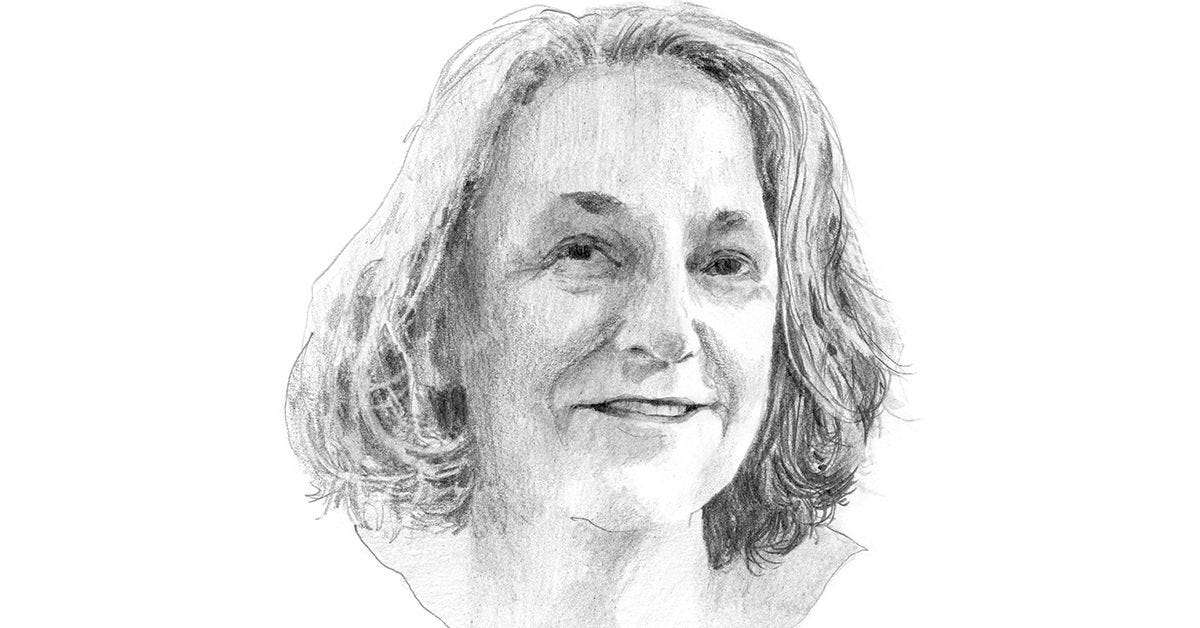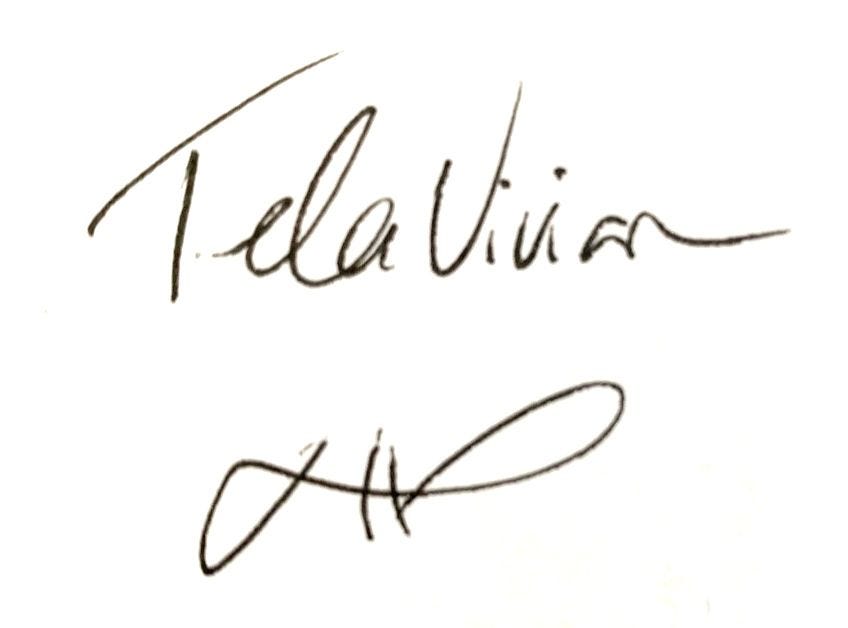From the Desk of TelaVivian, Vol. 5: Religious Progress?
Vivian Bercovici introduces Sarah and Hallel Silverman, a mother and daughter working for change in Israel as progressive, religious women

I. Meet the Silvermans
It was quite a few years ago at IDC, now called Reichman University, in Herzliya, Israel, that I first met Hallel Silverman. During my tenure as Canadian Ambassador to Israel (2014-16), I was asked frequently to speak to university students and obliged as often as possible. In my experience, student groups are well-informed, fun and not constrained by overly deferential politesse, yet.
No matter who I’m addressing I always prefer to keep the speech part short and pithy and leave time for Q and A. When people are invited to participate and engage the whole event is energized.
Often, some will approach the front of the room or hall to continue the conversation after the “event” is over. On that day at IDC, among the lingerers was a lovely young woman who raised tough issues while radiating – no other way to put it (I hate cliches) – good energy. I made a point of getting her name.
These were pioneering days on Twitter and that student, Hallel Silverman, had a killer feed. Hers was a strong and forceful Zionist voice. Like many North American Jews, she was also very liberal. Unlike many liberal North American Jews, she was living in Israel and religiously observant. But in that quirky, confident way that you only find in Israel. You make your own kind of Jewish in this country.
A couple of years after our initial meeting and when I was no longer serving in public office, I reached out to Hallel to meet up for coffee. She struck me as a singular activist with a real knack for social media. I learned a lot from following her feed. At the time she was working for an NGO and sorting out, it seemed, where to place herself.
That was also peak Trump trauma time. We spoke a lot about that, Obama (I’m no fan), the “Squad” and the perils of advocating for Israel. She made a very interesting comment, noting how challenging it was to reach her crowd in the U.S. and get them to listen. They seemed to be so closed, she said, and have hard-baked ideas about what Israel was – and was not – that tended to be poorly informed.
I was struck by her maturity and ability – unlike so many of her generation – to engage meaningfully and respectfully with another person with whom she agreed on many issues but certainly not on all.
It was at that meeting that she mentioned her father, who was deep into saving the planet with green energy projects in Israel and Africa. “What’s his name,” I asked. You never know. I know a lot of people.
The answer surprised me. Yossi Abramowitz.
“But. Wait. Your name is Silverman. I know a Yossi Abramowitz! THAT Yossi Abramowitz?!?”
Hallel had taken her mother’s surname. “What’s your mom’s name?”
“Susan Silverman.”
“The Rabbi Susan Silverman?”
The very one.
I still have not met Susan in person but Yossi, as it turns out, was the first family member I experienced live. It was several years earlier on a flight from Tel Aviv to Newark full of AIPAC attendees en route to the conference. This very friendly face that was basically a huge smile approached me and introduced himself. He seemed to have some idea as to who I was. We had a lovely chat about his life on a kibbutz when he first moved to Israel with his family, and his evolution as a green energy entrepreneur which was, as it turns out, what he would be speaking about in D.C.
Since then, every year or two I run into Yossi in the oddest places, always very random, and rushing off somewhere.
In many ways, this family represents the best of modern Israel: the ingathering of the exiles and allowing them to contribute their unique experience of Judaism to the historic and controversial endeavor of rebuilding a nation.
They also embody the mandate of State of Tel Aviv, which is to offer a truly pluralistic platform for the airing and exchange of a range of views on the tough stuff: religion and state being critical.
II. BUSTING UP THE ECHO CHAMBERS
We have become so accustomed to functioning in echo chambers that reinforce our views that we have lost the critical skill one must have in a robust democracy: the ability to listen and engage, respectfully, even with those with whom we may disagree.
As the founder, publisher and editor of State of Tel Aviv, I certainly have opinions and among them is a fierce commitment to supporting a range of views. I hope that our readers do not agree with everything but, even then, will find the work well-written and will come away having learned something new.
That is what State of Tel Aviv is all about: high-level thought and discussion on matters of importance to Israel, the Middle East and Jewish life, generally. In that spirit, I am so pleased to present to you one of the many wonders of Israel – the crazy intellectual energy of this place. Susan and Hallel Silverman personify that.
Some time ago, I asked Hallel and Susan to consider writing a personal piece about their quite unique experience living as leftish, progressive Jews in Israel who are also religiously observant. They are smart iconoclasts who enrich the public square, in my opinion. They also have the distinction of having been detained by police, together, for daring to worship, openly and on their terms, at the Western Wall in Jerusalem.
Susan and Hallel decided to share their experience in a conversation format. It is a riveting story, enriched with deep knowledge of activism and religion while being respectful, open and honest. Their commitment to high ideals imbues every line.
They also challenge traditional customs regarding the practice of Judaism. That, in and of itself, will drive some people crazy. If you are one of those, then I suggest you ask yourself: “Why?”
III. RELIGION AND STATE IN ISRAEL: THE INTRACTABLE CHALLENGE
At this time of year, I thought this Silverman conversation is timely.
Very soon will be Rosh HaShanah – the Jewish New Year celebration which also marks the onset of the “Days of Awe” (ten days between Rosh HaShanah and Yom Kippur – the Day of Atonement). During this period, Jews are meant to take a “timeout” from thinking about material and mundane matters to focus on the spiritual.
We are meant to think, hard and deeply, about our values as individual Jews, members of various communities, and citizens of nations and the world; to reflect upon how we wish to participate in and influence life.
As a North American woman who is not at all religious and living in Tel Aviv, I am fascinated by the challenges of integrating religion in a democratic country; perhaps the most difficult and intractable issue faced by the modern State of Israel.
When I brought my daughters to Israel for their first visit in 2007, issues touching on equality centered in our discussions and adventure, prominently.
As I recounted previously in TelaVivian, Vol. 3:
Nearing the end of our time there [at the Kotel], one of my girls asked me: “Why is there so much less prayer space for the women than the men? And why are the boys allowed on the women’s side with their moms, but the girls aren’t allowed on the men’s side with their dads?”
There are many “compromises” that the state of Israel supports in order to manage and integrate the secular, the pious and the many variations of each (in multiple religions). Perhaps the most important symbol of this effort is the Western Wall; the remains of the Second Temple destroyed by the Romans in 70 CE, which marks the beginning of the dispersal of Jews around the world for more than 2,000 years.
When they returned and founded a nation in 1948, it did not include the Old City of Jerusalem, within which the Western Wall (of the Second Temple) – or “Kotel” in Hebrew – is situated. That changed in 1967 when Israeli troops entered the walled Old City in response to the attack by Jordanian forces on Israel’s unsettled eastern flank.
As with so many religious matters, management and control of this holy site was granted to the ultra-Orthodox, exclusively male religious establishment. And they have very strong, unequivocal views as to how things must be done. The purity of their harsh and ascetic interpretation of Judaism reflects the sensibilities of a small fraction of the Israeli population, but prevails, for many political reasons. A superb overview of the politicization of the Western Wall “rules” is available in a recent article published in State of Tel Aviv, Minority Rule: Why the Kotel still favors Orthodox Jews, written by Natan Sharansky (yes, THAT Sharansky) and Gil Troy.
The Silvermans refuse to accept this situation and, unlike most of us, they act on their principles. And this is what they discuss in their fascinating conversation we’ll be dropping later today for your reading.
To many Israelis and foreigners, the non-egalitarian strictures imposed on the Western Wall Plaza and practice are deeply offensive. Then again, to the ultra-Orthodox the possibility of treating such holy sites any differently is profoundly disturbing. For them, there is one way in which to interpret the Old Testament and it is their way.
“My way or the highway,” you might say.
Truth is, most Israelis – even those who disagree strongly with the way in which the state has handled this delicate matter – are sanguine about the whole thing. In Israel, things are more binary when it comes to religious observance. Either you are or you aren’t. And if you are, until the last twenty years or so, you are very observant. Meaning that you are likely to accept the orthodox interpretation of things.
Israelis have got plenty of immediate issues to focus on that require a lot of energy – like kids serving in the army – and all the day-to-day stuff that tends to occupy people everywhere.
People living outside of Israel tend not to understand this acceptance of the status quo as it exists today. In western democracies, the separation of church and state, and accommodation of more egalitarian approaches to such matters is much more advanced.
It is people like Susan and Hallel Silverman who maintain the focus on the unceasing importance of understanding and enhancing the place of women in all facets of Israeli life, including policies regarding religion and state.
One of the greatest compliments I receive from time to time, as founder, publisher and editor of State of Tel Aviv, is being called a “lefty” one week and a “right-wing extremist” the next. That tells me that we are doing something right on this platform.
I hope you enjoy this important conversation between Susan and Hallel, mother and daughter, as much as I did. It will be open to everyone – both free and premium subscribers – to kick off the coming holiday season and Jewish New Year.
And if you feel like trying out some of our latest Premium content, I’m thrilled to let you know we now have 30-Day Free Trials available at State of Tel Aviv.
If you’ve wanted to subscribe but haven’t quite made it over the fence yet – feel free to indulge for 30 days – on the house.
As always, lots more to come…





